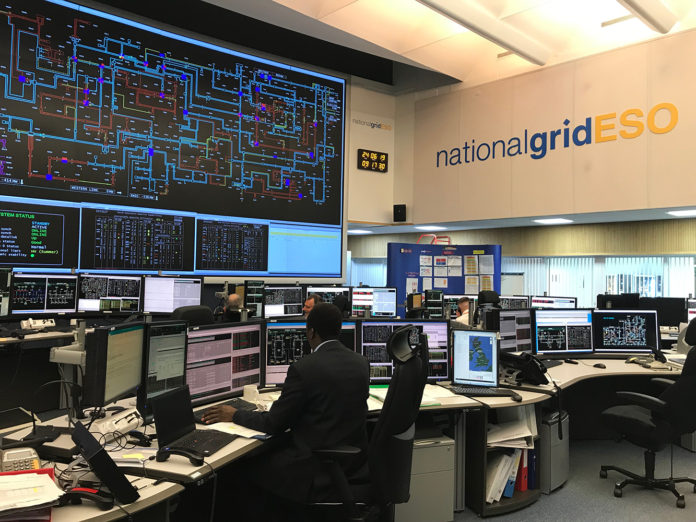WIDER range of technologies and providers will be able to access Great Britain’s balancing mechanism market as National Grid Electricity System Operator (ESO) makes changes removing barriers to entry.
As part of an update designed to improve equality of access for providers and boost the real-time flexibility of the system, the ESO is lowering the minimum threshold for taking part in the BM from 100MW to 1MW, opening up the market for small and aggregated units in regional networks to provide power to the grid.
Richard Smith, head of commercial at National Grid ESO, said: “Our electricity system in Great Britain is changing; we’re making it smarter and more flexible as we shift away from traditional large thermal power generation to cleaner, decentralised power.
“This transformation is central to the way we balance the system today, as we continue working towards being able to operate carbon free by 2025.
“Widening access to our balancing mechanism is an important step towards meeting that 2025 target, and making sure our system is as flexible and secure as possible.
“It opens up opportunities for new providers and technologies to become part of the market, and for that market to further diversify its energy mix as we bring embedded generation like solar and wind into the balancing mechanism.
“We’re looking forward to working with a new range of providers at this exciting time.”
Following the market changes by the ESO and ELEXON, these providers will be able to register in the BM as a ‘virtual lead party’ – a new type of market participant which can provide balancing services without needing a supply licence or to pay ‘use of system’ costs (BSUoS and TNUoS) – and create secondary BM units to offer flexibility to the grid.
The BM is one of the main tools the ESO uses to balance supply and demand on the electricity system in real-time, alongside balancing services like frequency response and reserve. Through the BM, providers can offer to increase or decrease their generation or demand to help balance the system.
From today the ESO will be able to accept offers and bids from smaller providers and ‘virtual lead parties’ as well as large generators, a change that will improve system flexibility, allow more renewable power to contribute to balancing the grid, and bring better value to consumers.
The changes to the BM follow the publication last week of the ESO’s new roadmap for response and reserve, which sets out how its ancillary services and markets for managing frequency will develop as it transforms the grid to be able to operate with zero carbon by 2025.
Mark Bygraves, Chief Executive of ELEXON, said: “ELEXON is playing an important role in the energy industry transition, which will help to deliver the Government’s net-zero ambitions, and today we are delighted to have reached a significant milestone in that evolution.
“By delivering changes to enable ‘virtual lead parties’ to start operating in the Balancing Mechanism we are facilitating new ways to use and produce electricity.
“A more open and accessible Balancing Mechanism will be able to play a big part in the energy transition.
“It means, for example, that independent aggregators can help more consumers provide demand side response.
“Independent aggregators can also help to ensure that the benefits of increased diversity and decentralisation in electricity supply are maximised, both for businesses and consumers.”
